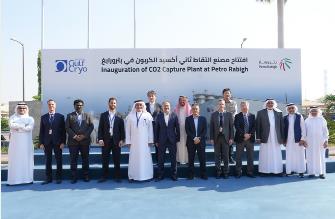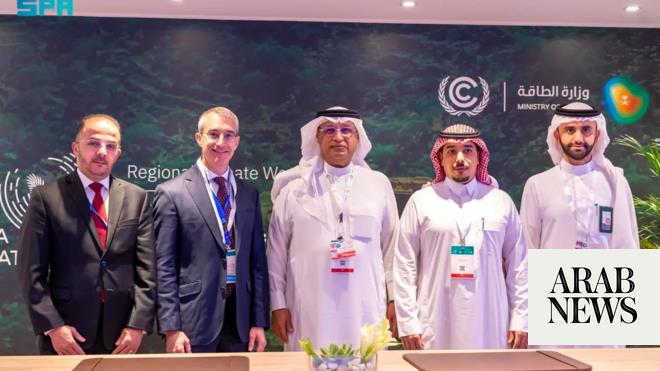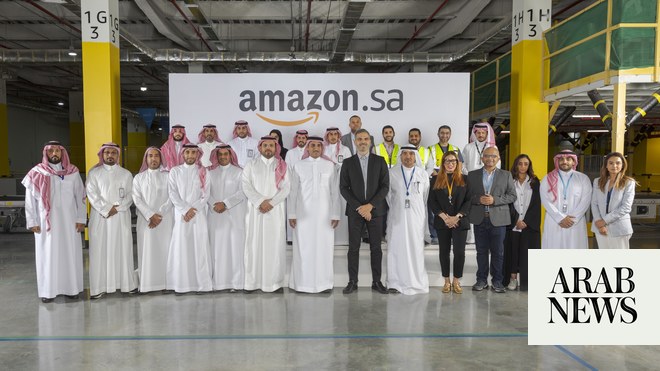
RIYADH: Saudi Arabia has stepped up its commitment toward climate change by launching a carbon capture and utilization facility in Rabigh.
The facility, a collaborative project between Petro Rabigh and Dubai-based gas firm Gulf Cryo, was officially opened on Thursday.
This project is the first of its kind in the western region of Saudi Arabia dedicated to the merchant market and the second overall in the Kingdom, according to a press note.
The carbon capture plant resulted from a long-term strategic partnership inked in March 2022 between the two companies to develop Petro Rabigh’s monoethylene glycol facility in the Red Sea town of Rabigh.
“Through this pioneering initiative under our strategic partnership, we are demonstrating an unwavering commitment to significantly reducing emissions over the long term. This directly supports the Kingdom’s ambition to achieve net-zero emissions by 2060,” said Othman Al-Ghamdi, president and CEO of Petro Rabigh Co., in a statement.
The newly launched facility can directly capture 300 metric tons of carbon dioxide per day from the MEG plant.
It is expected to reduce carbon emissions by 100,000 metric tons annually, achieving an 85 percent reduction in its total annual carbon footprint.
According to the release, the plant will process the captured carbon dioxide to a high-purity food-grade level and transport it in liquid form for reuse.
“This landmark project anchors our leading position in CCUS solutions in the region and marks our first carbon capture project in the Kingdom,” said Abdul Salam Al-Mazro, vice chairman of Gulf Cryo, in the statement.
Al-Mazro added: “It underscores the importance of managing the full CO2 value chain. We reduce emissions at source while utilizing the recovered CO2 as a vital resource to help decarbonize supply chains of various industries.”
Petro Rabigh will utilize a portion of this carbon dioxide stream internally, while Gulf Cryo will supply the remainder to various industries across the Kingdom.
These industries include water desalination and mineralization, food preservation and transport cooling, agriculture, beverage carbonation and ready-mix concrete, demonstrating a wide-ranging impact on the region’s environmental and industrial landscape.












